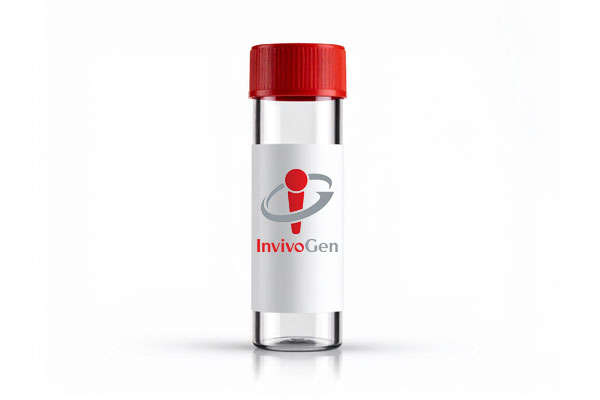
pUNO1-hTNFAIP3
-
Cat.code:
puno1-htnfaip3
- Documents
Expression-ready ORF Clones
Alias : A20, OTUD7C
Tumor necrosis factor alpha-induced protein 3.
The zinc finger protein A20, also called tumor necrosis factor, alpha-induced protein 3 (TNFAIP3), is a TNF- and IL-1-inducible protein that negatively regulates NF-kB-dependent gene expression. A20 is encoded by an immediate early response gene whose expression is induced by different inflammatory stimuli. A20 inhibits NF-kB activation induced by the TLR2 ligand PGN or the TLR4 ligand LPS [1,2], as well as IFN-beta transcription triggered by the TLR3 ligand ds RNA [3], the inhibition taking place at the level of TRAF6 [4]. Thus A20 acts as a negative regulator of TLR-mediated inflammatory responses, thereby protecting the host against harmful overresponses to pathogens.
References:
1. O'Reilly SM. & Moynagh PN., 2003. Regulation of Toll-like receptor 4 signalling by A20 zinc finger protein. Biochem Biophys Res Commun. 303(2):586-93.
2. Gon Y. et al., 2004. A20 inhibits toll-like receptor 2- and 4-mediated interleukin-8 synthesis in airway epithelial cells. Am J Respir Cell Mol Biol. 31(3):330-6.
3. Wang YY, A20 is a potent inhibitor of TLR3- and Sendai virus-induced activation of NF-kappaB and ISRE and IFN-beta promoter. FEBS Lett. 2004 Oct 8;576(1-2):86-90.
4. Heyninck K. & Beyaert R. 1999. The cytokine-inducible zinc finger protein A20 inhibits IL-1-induced NF-kappaB activation at the level of TRAF6. FEBS Lett. 442(2-3):147-50.
Specifications
Human TNFAIP3 (pUNO1-hTNFAIP3)
Genbank : NM_001270508.1ORF size : 2373 bp
Subclone : AgeI - NheI
Mouse TNFAIP3 (pUNO1-mTNFAIP3)
ORF size : 2328 bpSubclone : NcoI - NheI
Contents
- 20 µg of lyophilized DNA
- 2 x 1 ml blasticidin at 10 mg/ml
![]() Product is shipped at room temperature.
Product is shipped at room temperature.
![]() Lyophilized DNA should be stored at -20°C. Upon receipt, store blasticidin at 4°C or -20°C.
Lyophilized DNA should be stored at -20°C. Upon receipt, store blasticidin at 4°C or -20°C.
![]() Resuspended DNA should be stored at -20°C and is stable for up to 1 year.
Resuspended DNA should be stored at -20°C and is stable for up to 1 year.
![]() Blasticidin is a harmful compound. Refer to the safety data sheet for handling instructions.
Blasticidin is a harmful compound. Refer to the safety data sheet for handling instructions.
DOCUMENTS
Documents
Technical Data Sheet
Safety Data Sheet
Plasmid Map and Sequence
Certificate of analysis
Need a CoA ?